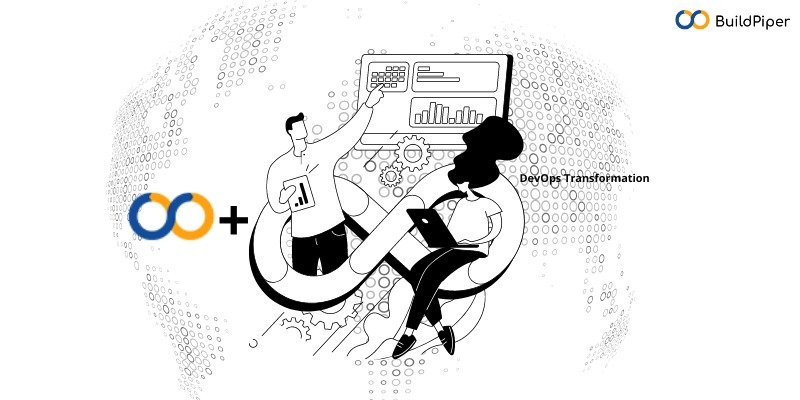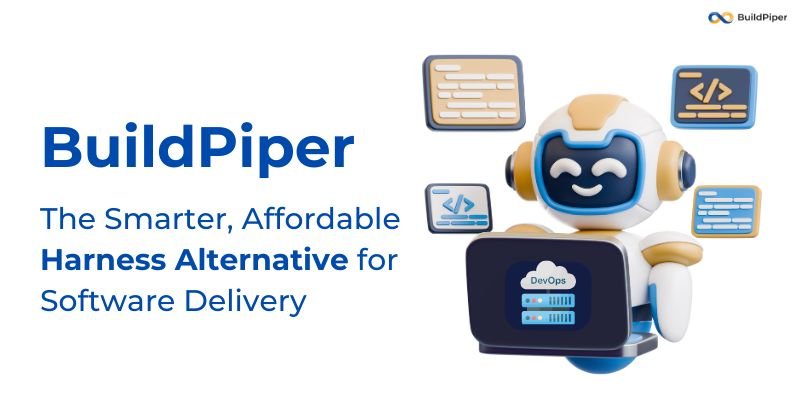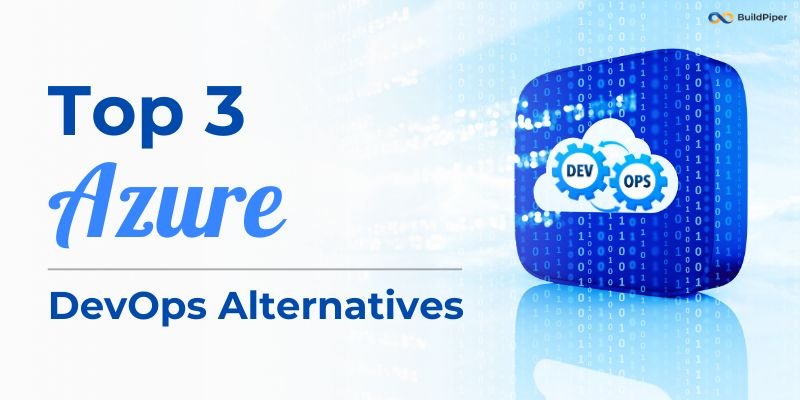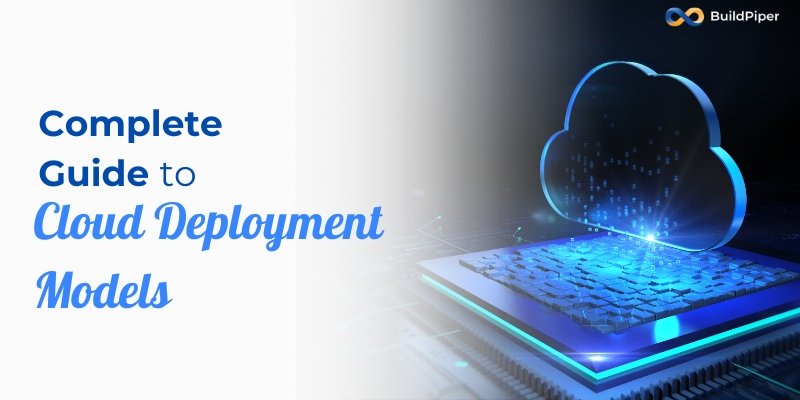In the modern age of technology, software development is evolving at an unprecedented rate. DevOps practices, these days, are becoming increasingly crucial to meet the demands of the quickly evolving digital sphere. However, implementing DevOps can be a daunting task for organizations and many enterprises struggle to achieve the desired outcomes.
That’s where BuildPiper comes in as the ultimate DevOps solution. This powerful platform can help your enterprise achieve faster and more reliable software deployment & development, continuous integration & delivery, automated testing, collaboration, and scalability. Here, in this blog, we’ll explore DevOps transformation, its challenges and how a DevOps platform such as BuildPiper can help your organization in this process.
What is DevOps Transformation?
DevOps transformation refers to the process of adopting and implementing DevOps practices within an organization. DevOps is a set of software development practices that emphasizes collaboration, communication, and automation between software development and IT operations teams. The goal of DevOps is to increase the speed and efficiency of software delivery while improving software quality and reducing the time to market. DevOps transformation involves a cultural shift within an organization, where development & operations teams work together to build, test, and deploy software more efficiently. This requires a change in mindset, as well as changes in processes, tools, and technologies.
Steps involved in DevOps Transformation
DevOps transformation is a continuous process that involves collaboration between development and operations teams to improve the delivery of software products. Following are some of the steps involved in a DevOps transformation:
- Assessing the Current State: It involves evaluating the existing development practices, identifying bottlenecks, and determining the areas of improvement.
- Defining Goals: It involves defining the goals and objectives of the transformation, such as reducing deployment time, improving software quality, enhancing team collaboration, and achieving continuous delivery.
- Forming a DevOps Team: The next step involves forming a cross-functional DevOps team that includes developers, operations, quality assurance, and security experts. The team should be empowered to make decisions and have the necessary skills and resources.
- Creating a DevOps Culture: DevOps culture emphasizes collaboration, communication, and continuous improvement. It involves breaking down the silos between development & operations teams, fostering a culture of transparency and encouraging experimentation & innovation.
- Automating Processes: Automation is a key aspect of DevOps. It involves automating the entire CI/CD Pipeline, including code testing, deployment, and monitoring.
- Implementing Tools: Implementing the right set of tools is critical for the success of a DevOps transformation. It involves selecting tools that can automate the development & deployment process and provide real-time monitoring and feedback.
- Continuous Learning and Improvement: DevOps transformation is an ongoing process that requires continuous learning and improvement. It involves measuring performance metrics, identifying areas of improvement, and implementing changes to improve the process continuously.
By following these steps, organizations can successfully implement DevOps practices. Also, they can achieve their goals of delivering high-quality software products faster and more efficiently.
Challenges of DevOps Transformation
DevOps transformation can bring many benefits to organizations, including increased efficiency, faster delivery, and better collaboration between teams. However, there are several challenges that organizations may face during this process. Some of the common challenges of DevOps transformation are:
- Cultural Change: DevOps requires a significant cultural shift, as it involves breaking down silos between teams and creating a culture of collaboration and communication. This can be difficult to achieve, especially in larger organizations with established hierarchies and processes.
- Resistance to Change: Some team members may resist the changes brought by DevOps, particularly if they feel that their job roles or responsibilities are being threatened. This can lead to a lack of buy-in and slow down the transformation process.
- Tooling and Automation: DevOps relies heavily on automation and tooling, which can be challenging to implement and maintain, particularly if an organization has a legacy infrastructure.
- Security: DevOps can introduce new security risks if not implemented correctly. Ensuring that security is built into the process from the start is essential to mitigate these risks.
- Metrics and Monitoring: DevOps requires a significant focus on metrics and monitoring to ensure that the process is delivering the desired results. This can be challenging to implement if an organization is not used to working in this way.
- Skills Gap: DevOps requires a range of skills, including technical, process, and communication skills. Organizations may need to invest in training and development to ensure that their teams have the skills they need to succeed in a DevOps environment.
Addressing these challenges requires a strategic and holistic approach that involves well-strategized planning and a powerful DevOps platform such as BuildPiper.
[Good Read: Accelerating Your DevOps Journey With BuildPiper]
How can BuildPiper help in DevOps Transformation?
BuildPiper was developed considering the enterprises’ need to build a strong foundation centred around developer productivity and reduced time-to-market. The platform enables teams to onboard & securely manage Kubernetes & Microservices applications in a seamless manner. Also, the platform empowers teams with the ability to run zero-touch, fully automated & secured CI/CD pipelines. Let’s see how this platform can help organizations in their DevOps transformation journey,
- Automation: BuildPiper provides end-to-end automation of the software delivery pipeline, including build, test, software deployment, and monitoring. This allows organizations to accelerate their software delivery process and achieve continuous integration and delivery.
- Integration: BuildPiper seamlessly integrates with industry-leading tools like JIRA, SLACK, MS Teams, EFK and much more. This enables organizations to easily integrate their existing tools and processes into their DevOps workflow.
- Kubernetes & Microservices Management: With incredible features such as Managed Kubernetes and Managed Microservices, BuildPiper helps enterprises with hassle-free, secured and compliant Kubernetes & Microservices app delivery.
- Visibility: BuildPiper provides real-time visibility and insights into the software deploy & delivery process. Organizations can monitor and view real-time deployment status to identify bottlenecks and reasons for failure.
- Security: BuildPiper provides robust security features, including access control, encryption, and vulnerability scanning. This ensures that the software deployment process is compliant with the organization’s security policies. The platform uses tools such as Trivy for Container Images Scanning & License Scanning and GitLeaks for Credentials Scanning.
- Customization: BuildPiper is highly customizable, allowing enterprises to tailor the platform to their specific needs and requirements. They can create custom workflows, upload custom manifest files to configure deployment details, define their own metrics and integrate their own tools & services.
- GitOps Integration to accelerate the App Delivery Process: BuildPiper supports comprehensive GitOps-based workflow orchestration to make the software delivery process developer-centric.
By leveraging the capabilities of BuildPiper, organizations can accelerate their DevOps transformation and achieve their goals of delivering high-quality software products faster and more efficiently.
Here’s how we enabled One-Click Teardown Or the Creation Of A New Environment On-Demand with BuildPiper for one of our clients.
The Future of DevOps is Here
BuildPiper’s unique features and benefits make it the ultimate DevOps solution for organizations of all sizes. No doubt, it is transforming the world of DevOps. By adopting this powerful platform, organizations can enhance their software development processes, increase efficiency & productivity and drive innovation in a highly competitive digital landscape.
So, don’t let the challenges of DevOps implementation hold you back! Take your software development processes to the next level with BuildPiper – the ultimate DevOps platform that can help you achieve faster and more reliable software development, continuous integration and delivery, automated testing, collaboration, and scalability.
Sign up today and revolutionize your DevOps transformation Journey!
Also, explore all features of this powerful DevOps platform including Managed Microservices, Managed Kubernetes, Secure Setup of CI/CD pipelines, and Security Compliance & Observability.
You may watch our Walkthrough Videos to understand BuildPiper and its functionalities.









